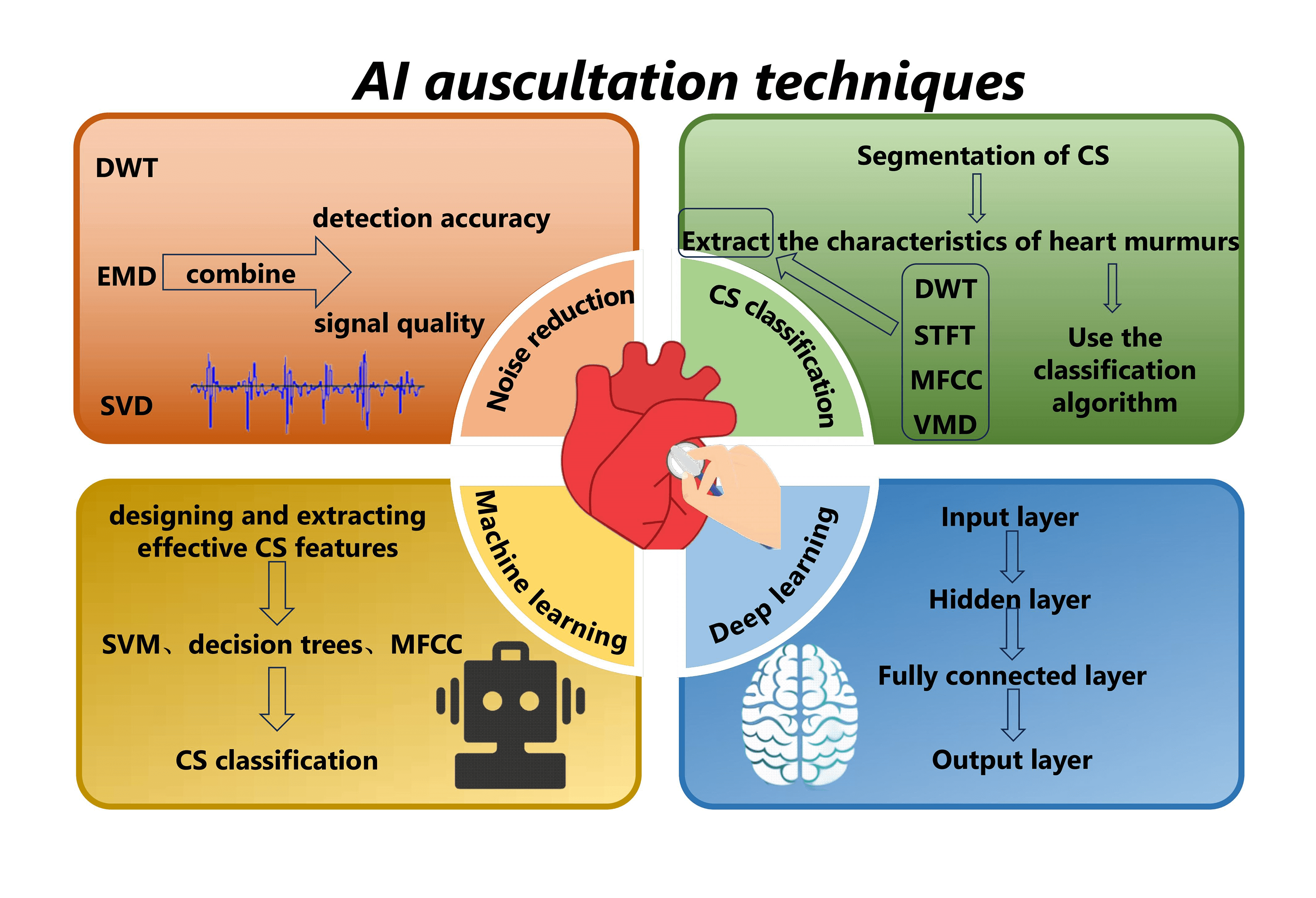 Open Access
Open Access
REVIEW
Machine Learning-Based Intelligent Auscultation Techniques in Congenital Heart Disease: Application and Development
Department of Cardiothoracic Surgery, Children’s Hospital of Nanjing Medical University, Nanjing, China
* Corresponding Author: Jirong Qi. Email:
Congenital Heart Disease 2024, 19(2), 219-231. https://doi.org/10.32604/chd.2024.048314
Received 04 December 2023; Accepted 28 February 2024; Issue published 16 May 2024
Abstract
Congenital heart disease (CHD), the most prevalent congenital ailment, has seen advancements in the “dual indicator” screening program. This facilitates the early-stage diagnosis and treatment of children with CHD, subsequently enhancing their survival rates. While cardiac auscultation offers an objective reflection of cardiac abnormalities and function, its evaluation is significantly influenced by personal experience and external factors, rendering it susceptible to misdiagnosis and omission. In recent years, continuous progress in artificial intelligence (AI) has enabled the digital acquisition, storage, and analysis of heart sound signals, paving the way for intelligent CHD auscultation-assisted diagnostic technology. Although there has been a surge in studies based on machine learning (ML) within CHD auscultation and diagnostic technology, most remain in the algorithmic research phase, relying on the implementation of specific datasets that still await verification in the clinical environment. This paper provides an overview of the current stage of AI-assisted cardiac sounds (CS) auscultation technology, outlining the applications and limitations of AI auscultation technology in the CHD domain. The aim is to foster further development and refinement of AI auscultation technology for enhanced applications in CHD.Graphic Abstract

Keywords
Cite This Article
 Copyright © 2024 The Author(s). Published by Tech Science Press.
Copyright © 2024 The Author(s). Published by Tech Science Press.This work is licensed under a Creative Commons Attribution 4.0 International License , which permits unrestricted use, distribution, and reproduction in any medium, provided the original work is properly cited.


 Submit a Paper
Submit a Paper Propose a Special lssue
Propose a Special lssue View Full Text
View Full Text Download PDF
Download PDF Downloads
Downloads
 Citation Tools
Citation Tools